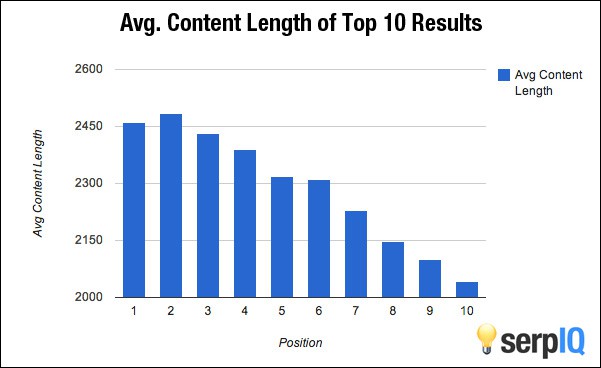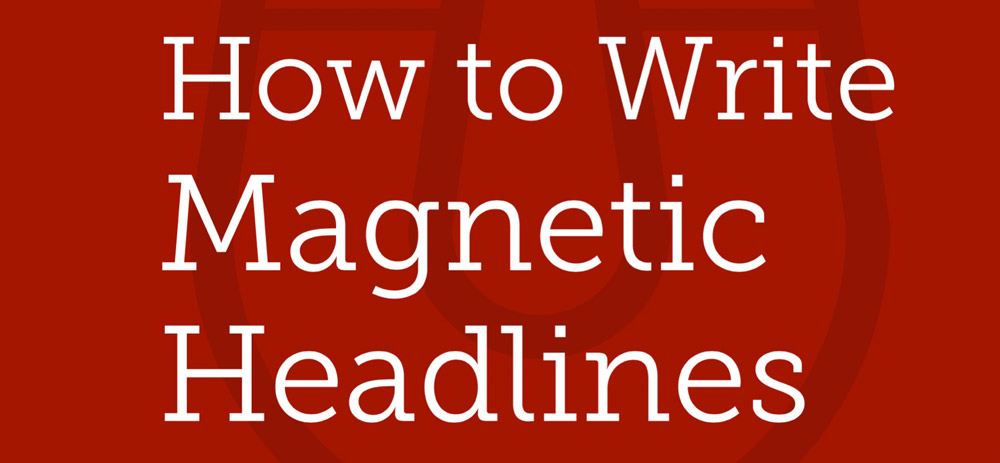Blogging for Beginners Vol. 3: Tips for Addictive Content
While the first part of our series dealt with the right domain and a suitable web host, the second part was about essential equipment, plugins and the choice of good themes for your blog. Today, we'll talk about the thing that makes you a blogger: content. Well, not only content but addictive content!
[caption id="attachment_73978" align="alignnone" width="550"] "Just Write"?[/caption]
Good content is what makes the internet, and turns blogs into what they should be: an inspiring source of knowledge with a perfect presentation. Bloggers have a significant advantage over traditional journalism. They can express their personality in their articles, allowing them to develop a unique style. Let's get on with a few tips I can give you from my experience.
"Just Write"?[/caption]
Good content is what makes the internet, and turns blogs into what they should be: an inspiring source of knowledge with a perfect presentation. Bloggers have a significant advantage over traditional journalism. They can express their personality in their articles, allowing them to develop a unique style. Let's get on with a few tips I can give you from my experience.
 © serpIQ. The Top Rankings Average 400 Words More Than the Lower Rankings.[/caption]
© serpIQ. The Top Rankings Average 400 Words More Than the Lower Rankings.[/caption]
 One of the 15 Free E-Books From Copyblogger.com[/caption]
Copyblogger is likely to be the most popular website when it comes to content marketing. The formerly personal blog of Brian Clark has turned into a rather large business with plenty of pillars over time. The amount of things you can learn is massive.
For instance, there's no other website that offers 15 professional e-books for free, all of which are full of knowledge on all areas of internet and content marketing. By the way, many other websites already use the knowledge of Copyblogger.com.
One of the 15 Free E-Books From Copyblogger.com[/caption]
Copyblogger is likely to be the most popular website when it comes to content marketing. The formerly personal blog of Brian Clark has turned into a rather large business with plenty of pillars over time. The amount of things you can learn is massive.
For instance, there's no other website that offers 15 professional e-books for free, all of which are full of knowledge on all areas of internet and content marketing. By the way, many other websites already use the knowledge of Copyblogger.com.
 "Just Write"?[/caption]
Good content is what makes the internet, and turns blogs into what they should be: an inspiring source of knowledge with a perfect presentation. Bloggers have a significant advantage over traditional journalism. They can express their personality in their articles, allowing them to develop a unique style. Let's get on with a few tips I can give you from my experience.
"Just Write"?[/caption]
Good content is what makes the internet, and turns blogs into what they should be: an inspiring source of knowledge with a perfect presentation. Bloggers have a significant advantage over traditional journalism. They can express their personality in their articles, allowing them to develop a unique style. Let's get on with a few tips I can give you from my experience.
Write For Your Readers, Not For Google
You should do that, as there's way too much content that wasn't written for the readers, but rather directly for Google. On the one hand, this gives you an advantage in the search index, on the other hand, however, you let lots of potential go to waste. Those that optimize their posts for readers will gain significantly more visitors in the long run. Readers share posts they like. This is mainly done via Facebook. Facebook can be a massive source of traffic for your blog. Hopefully, your visitors will also comment on the posts they like. They state their opinion and often add important aspects to the information. You won't get this type of feedback from Google. Google itself also wants to see content optimized for the reader. Now, let's take a look at the structure of your blog posts' content.1 - Pick a Good Topic
The topic you choose should be one that you have lots of knowledge on. Don't make any hasty decisions, but take the time you need to find the right topic. Once you found it, you could do some research on Google to find out which part of your topic is not covered enough already. Step by step, your topic will manifest itself in your head, and writing the article will become very easy.2 - Think of an Excellent Title
An excellent title is essential for your article. A perfect heading should make readers curious and have them click. It also shouldn't be too long. For the full heading to be shown in the Google search results, it can't have more than 65 characters. Of course, you also have the option to use a different title on your blog than in the search results. Yoast SEO or other SEO plugins allow you to determine separate SEO titles to be displayed in the search results.3 - Write a Catchy Introduction
The introduction is the first part of your article. It should give a brief explanation of what the article will be about. In the majority of cases, two sentences are enough to explain an article and make the visitor want to read. However, to do that, it will have to be written in a way that makes the reader curious. A potential reader will decide whether or not he wants to read the article depending on the title and introduction.4 - Start the Post and Go Into Detail
The introduction is followed by the opening which prepares the reader for the article. This is where the red line that should be consistent throughout the whole article begins. After a short opening, the time has come to go into detail and start dealing with your topic closer. Going into detail definitely doesn't hurt, the opposite is the case. Try and write the article as elaborate as possible. Stay away from filler words and tricks that are used to artificially stretch the article. Still, Google likes elaborateness and will generally rate long articles better than short ones. Thus, an article should have around 1,000 words. But beware. Only use 1k words if necessary. Studies have shown that the best articles with the best ranking have an average of 2,000 words. Capsicum Mediaworks Found out that the top articles average 2,400 words. [caption id="attachment_77262" align="alignnone" width="601"] © serpIQ. The Top Rankings Average 400 Words More Than the Lower Rankings.[/caption]
© serpIQ. The Top Rankings Average 400 Words More Than the Lower Rankings.[/caption]
5 - The Important Quality Control
Before publishing an article, in-depth quality testing should be conducted. Check your text for spelling errors and unnecessary filler words. Check your style. If you find style errors, correct them. When aspects of the topic were not dealt with sufficiently, extend your article. It's better to publish fewer articles as long as they are detailed and of high quality. Your readers will be thankful. For English texts always use Grammarly.6 - Elaborate Information
In the following articles, we have compiled all important aspects of the construction of articles, as well as what should happen after they were published. You'll learn about the structure of a professional article, and what professionals do before and after publishing.- Noupe: Blog Checklist: 10 Important Things Before Publishing an Article
- Noupe: Blog Checklist #2: 10 Things That You Should do After Publishing an Article
How to Become a Perfect "Copyblogger"
No, a copyblogger does not copy other blogger's texts. A good copyblogger can be seen as some sort of advertorial writer. He refines texts in a way that makes them enjoyable to read. This way, he drastically increases the scope of his articles' distribution. The interesting thing is, that every text on a website is an advertising text. You want to accomplish something with your content. Maybe you want to convert people to fans and faithful readers, or you want to make them subscribe to your newsletter. Perhaps you run an online shop and want to boost the conversion rate to make more people buy your products. Fantastic texts are required for all of the above - ad texts, even if you dislike the word. Here are some useful resources for you to read.Copyblogger.com - useful free knowledge for you
[caption id="attachment_77264" align="alignnone" width="660"] One of the 15 Free E-Books From Copyblogger.com[/caption]
Copyblogger is likely to be the most popular website when it comes to content marketing. The formerly personal blog of Brian Clark has turned into a rather large business with plenty of pillars over time. The amount of things you can learn is massive.
For instance, there's no other website that offers 15 professional e-books for free, all of which are full of knowledge on all areas of internet and content marketing. By the way, many other websites already use the knowledge of Copyblogger.com.
One of the 15 Free E-Books From Copyblogger.com[/caption]
Copyblogger is likely to be the most popular website when it comes to content marketing. The formerly personal blog of Brian Clark has turned into a rather large business with plenty of pillars over time. The amount of things you can learn is massive.
For instance, there's no other website that offers 15 professional e-books for free, all of which are full of knowledge on all areas of internet and content marketing. By the way, many other websites already use the knowledge of Copyblogger.com.
The E-Books
- Copywriting 101: How to Craft Compelling Copy
- How to Write Magnetic Headlines
- How to Create Compelling Content that Ranks Well in Search Engines
- Content Marketing: How to Build an Audience that Builds Your Business
- The Business Case for Agile Content Marketing
- A Content Marketing Strategy that Works
- How to Create Content that Converts
- How to Effectively Promote Your Content
- Content Marketing Research: The Crucial First Step
- The 5 P Approach to Copy that Crushes It
- Email Marketing: How to Push Send and Grow Your Business
- Keyword Research: A Real-World Guide
- Landing Pages: How to Turn Traffic into Money
- 10 Rock Solid Elements of Effective Online Marketing
- Internet Marketing for Smart People: Classic Edition

Point 4 in your list is very interesting….I was aware that articles need to be of a certain length to be consdiered credible, but 2,000 words seems like a lot. I’d better go back through some of my own blog posts and start to write some more copy for each post, as I’m generally writing around 1,000 words per article I post…
That is true. Content is the backbone of any blog. If the content is not addictive, a blog can not run very long.
I always try to write long contents and use Grammarly to make my content error free.
CopyBlogger is a great website to learn content marketing.
Thanks for the wonderful tips.
Yes, diana is right. The most important thing in the blog is the blog content. If the content is not high quality. Than the users will not read them. That is why they say quality matters, quantity does not matter.
Great and very informative blog for beginners.
Hi Andreas, quick question. Is there a way to properly optimise an article for on-page optimisation? I’m sure you’re also tehcnically adept when it comes to SEO and content optimisation. Any tips for keyword count, number of words etc. would be helpful. Thanks!
Getting Started is the most important point! :)
Great tips. Already Vol.3, amazing. Tip 4 and 5 most important I think and difficult but if we spare a bit time for them – reward will be compensable.
Does content length apply to all languages? What if I’m not blogging in English?